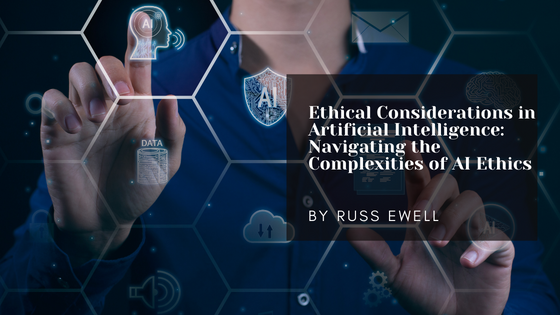In today’s rapidly evolving technological world, artificial intelligence (AI) is progressively woven into diverse facets of our existence, spanning healthcare, finance, transportation, and entertainment. While AI holds immense potential to improve efficiency and enhance decision-making, it also raises profound ethical concerns that need careful consideration.
One of the primary ethical considerations in AI revolves around the issue of bias. AI systems learn from vast amounts of data; if this data is biased or incomplete, it can lead to discriminatory outcomes. For example, AI algorithms used in hiring processes may inadvertently perpetuate gender or racial biases in historical data, resulting in unfair treatment of certain groups. Addressing bias in AI requires transparency in data collection, thorough testing for fairness, and ongoing monitoring to detect and rectify any biases that arise.
Privacy is another critical ethical concern associated with AI. As AI systems collect and analyze large volumes of personal data, there is a risk of infringing on individuals’ privacy rights. For instance, AI-powered surveillance systems can track people’s movements and behaviors in public spaces, raising questions about the extent of surveillance and protecting individuals’ privacy. Striking a balance between leveraging AI for public safety and preserving individuals’ privacy requires robust data protection regulations, precise data usage, and consent guidelines.
Moreover, the issue of accountability is paramount in the realm of AI ethics. As AI systems become more autonomous and make decisions that impact human lives, it becomes crucial to determine who is responsible when things go wrong. Unlike human decision-makers, AI algorithms lack moral agency and cannot be held accountable similarly. Establishing frameworks for accountability and transparency in AI development and deployment is essential to ensure that individuals and organizations are held responsible for the outcomes of AI systems.
Furthermore, the ethical implications of AI extend to issues of autonomy and job displacement. AI technologies have the potential to augment human capabilities and improve productivity, but they also raise concerns about job automation and the displacement of human workers. Guaranteeing the development and implementation of AI technologies to prioritize human well-being and respect human autonomy requires proactive measures such as reskilling and upskilling initiatives and policies that support job transition and reintegration.
In conclusion, navigating the complexities of AI ethics requires a multidisciplinary approach encompassing technical expertise, legal frameworks, and ethical considerations. As artificial intelligence (AI) progresses and becomes more ingrained in diverse facets of society, it becomes imperative to emphasize moral values like fairness, transparency, privacy, and accountability. By addressing these ethical considerations proactively, we can utilize the full potential of AI while mitigating its potential risks and ensuring that it serves the collective good.

